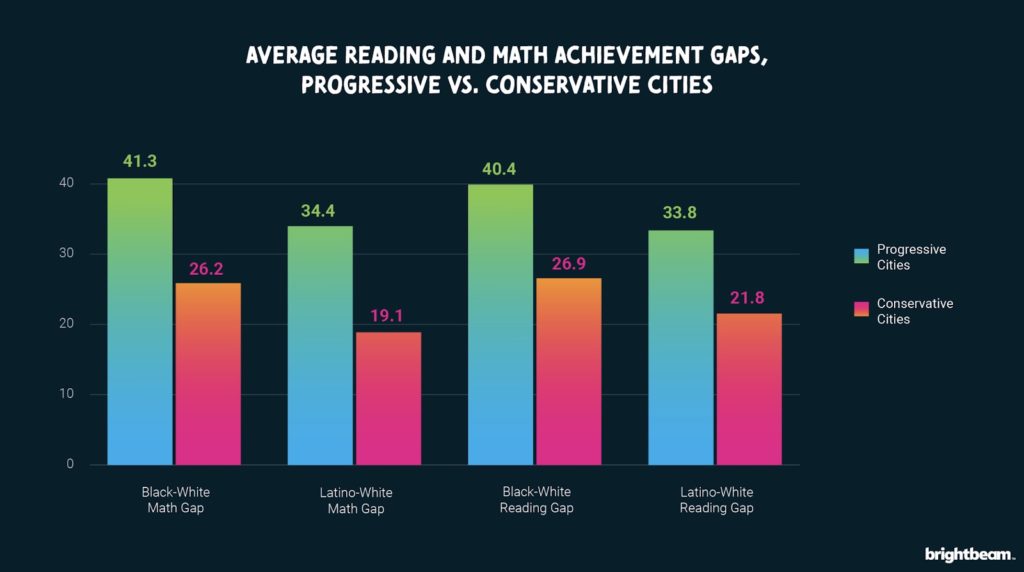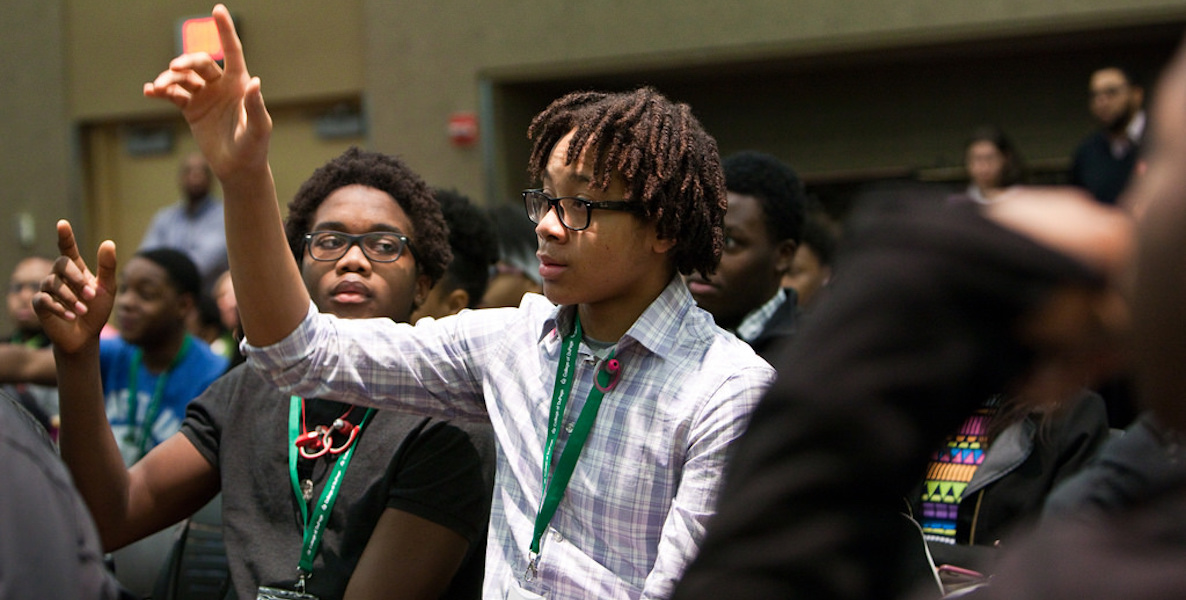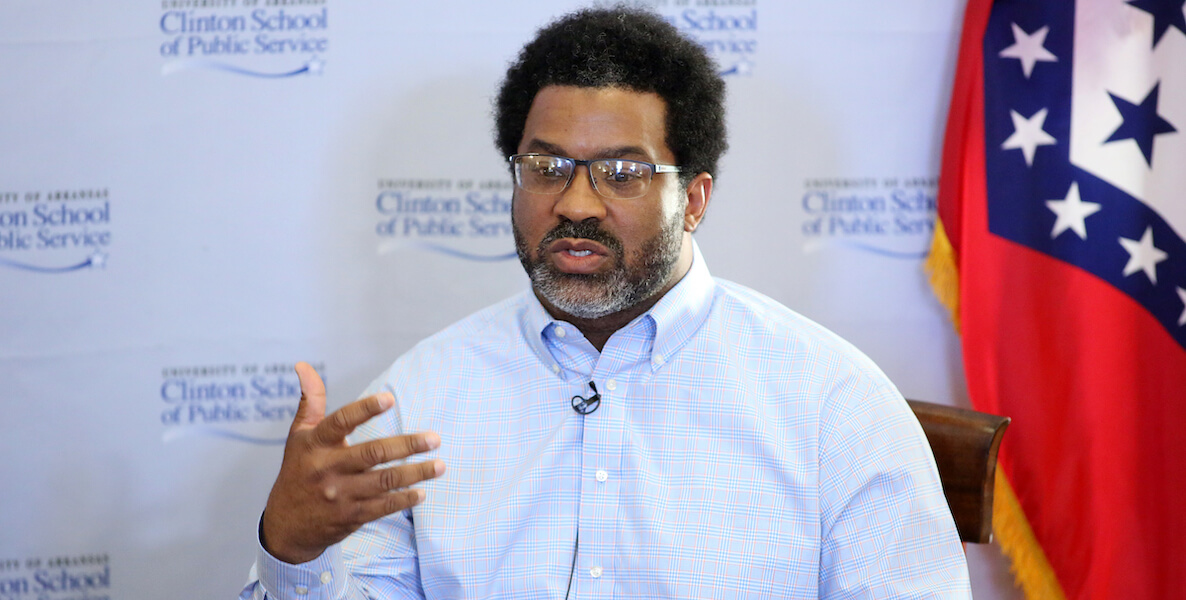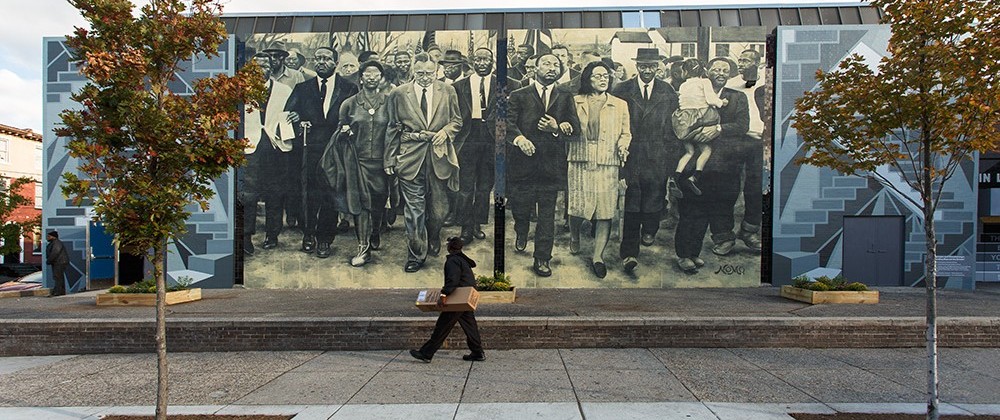I’ve had the chance to travel a lot in my work as an educator and activist, and frequently I find myself in what I call the “too-expensive-for-Black folks” cities.
You know, those cities that present themselves as magnets for change and opportunity, but when you look past the facade (my friend and colleague Chris Stewart likes to call out all the hot yoga, tofu, paper straws and green this and green that), you uncover something deeper and more troubling.
After they’ve told you how healthy the soybeans are for like the millionth time, and you finally get to ask the seemingly simple question, “How are the children?”—it is met with devastating disappointment.
Everyone progresses with a progressive platform, apparently, except for Black and Brown children.
I wish I could claim disappointment, but sadly I’m not surprised at all by the recent report released by Brightbeam, “The Secret Shame: How America’s Most Progressive Cities Betray Their Commitment to Educational Opportunity for All.”
It reveals what we know all too well—the achievement gap is real between Black and Latino students and their White peers. But here’s the twist: “Students in America’s most progressive cities face greater racial inequity in achievement and graduation rates than students living in the nation’s most conservative cities.”
The report reveals that, on average, progressive cities have achievement gaps in math and reading that are 15 and 13 percentage points higher than in conservative cities, respectively.
Often progressives don’t want to confront the fact that their attempts to improve the quality of life of the “average American” often fail to confront the racial oppression suffered by Black and Brown children.
In our very own nation’s capital, 83 percent of White students scored proficient in reading compared to 23 percent of Black students—a 60-point gap. Philadelphia isn’t included in the report, as it falls somewhere between the 12 most progressive and 12 most conservative cities examined. But according to the 2019 Nation’s Report Card, there’s a 35-point gap in reading proficiency between Black and White fourth-graders, and a 22-point gap between Black and White eighth-graders in Philly.
Granted, there are plenty of differences between progressive and conservative cities. That aside, no member of the political class in any city should feel proud of achievement gaps that exist. And that certainly shouldn’t be the case for a city that prides itself on equity and opportunity for all.
Here’s the thing: Successful schools require far more than simplistic rhetoric and hipster hangout spots. Now, the report is not claiming that progressive politics are the root cause of these gaps. But it sure confirms what I already know: As a Black man, I cannot rely on political parties to achieve educational justice for Black children—regardless of how green the town is. (And I like green towns. My family has helped plant over 100 trees.)
If progressivism is measured by Black outcomes, you might as well deem it regression.

Changing the fundamental principles that historically and currently marginalize and disinvest from Black and Brown communities is much harder, and too many progressives are intellectually lazy and fearful of doing what may be unpopular—even if it will yield results. And in my experience—especially if it will yield results for Black and Brown students.
Progressive policies that don’t specifically and unyieldingly address racism won’t change academic outcomes and life opportunities for the most marginalized racial groups in America.
How to demand a better plan for kidsDo Something
Folks who enrich themselves while plaguing the planet should be held accountable and blocked from doing so. But, I also know that progressives will ramrod my community through rapid gentrification, and too many Black kids fare no better in the cities with so-called “progressive” leadership.
I ROOT FOR THE CHILDREN
I learned long ago, that the illusion of progress is often just that—a mirage.
Some people root for everyone Black. Others root for everyone who yells that they’re progressive. I root for children and whoever is helping them meet their full, unabated, God-given potential. Unfortunately, that’s not always Black leadership, nor is it always folks who hold progressive ideals.
Progressive policies that don’t specifically and unyieldingly address racism won’t change academic outcomes and life opportunities for the most marginalized racial groups in America.
Progressivism in America is too often a set of great ideas polluted with White supremacy. If a movement’s foundation has strains of White supremacy, the fruits will be corrupted.
It’s worth mentioning on the heels of Martin Luther King Jr. Day that Dr. King was not shy to highlight in his “Letter from a Birmingham Jail” how so-called White moderates (aka “White progressives”) have historically shown that they have blurry vision and constricted thinking when it comes to the realities of the subversive ways that cancerous White supremacy remains steadfast in their mindsets, and thus, their policies.
Similarly in a speech Malcom X delivered in 1963 at the Manhattan Center called, “God’s Judgment of White America,” he called out the hypocrisy of what he called “liberals”:
Politically the American Negro is nothing but a football and the White liberals control this mentally dead ball through tricks of tokenism: false promises of integration and civil rights. In this profitable game of deceiving and exploiting the political politician of the American Negro, those White liberals have the willing cooperation of the Negro civil rights leaders. These “leaders” sell out our people for just a few crumbs of token recognition and token gains. These “leaders” are satisfied with token victories and token progress because they themselves are nothing but token leaders.
This is why, in many progressive cities, the American dream is still an enduring nightmare for Black and Brown people. Often progressives don’t want to confront the fact that their attempts to improve the quality of life of the “average American” often fail to confront the racial oppression suffered by Black and Brown children.
The Secret ShameRead the Report
Until progressivism is synonymous with Black and Brown progress, I’ll remain skeptical and treat it like an à la carte menu—I’ll take what’s good for my community’s children and say screw the rest.
Sharif El-Mekki, former principal of Mastery Charter School—Shoemaker, is founder/CEO of The Center for Black Educator Development. A version of this piece originally ran on The Education Post.
Photo by Samantha Sophia on Unsplash









